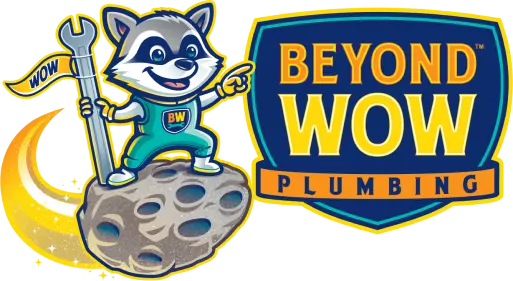Common Plumbing Myths That Might Cost You Money
Some plumbing myths are relatively harmless, aside from the fact that they spread incorrect information among homeowners. However, there are other plumbing legends making the rounds that could cost you plenty of money and cause a great deal of damage to your house.
Today, we hope to put a few of those myths to rest and tell you what you should do instead.
Plungers are All Powerful Plumbing Tools
Plungers are ideal for removing small and loose debris from pipes, but they aren’t designed for stubborn clogs, mineral buildup, or major blockages like tree roots. If you’re dealing with something other than a bit of food or a clump of bathroom tissue, you may need a more heavy-duty plumbing tool. The plunger is a good place to start, but if that doesn’t work, you may want to try a:
- Water ram that will blow out the blockage: these are great for sediment buildup
- Drain auger that will break up a blockage: these are perfect for stubborn and dense clogs
- Professional plumber: this is ideal when the blockage is too large, too far in the pipes, or if you don’t know what the problem is.
Nothing Can Swim Up Your Pipes
Unfortunately, opportunistic creatures like rats are capable of making their way from the sewer, through your pipes, and into your home.
The rats smell food in the drains, follow the smell, get lost in the plumbing, and find their way to the toilet. To avoid this, never flush food down your toilet, and don’t put food down the drains (unless you’re using garbage disposal).
A Leaking Faucet Isn’t Worth Your Time
If you value your water and your money, then a leaky faucet is absolutely something you should be worried about. A minor drip could waste around 500 gallons of water per year, while a medium (a one-drip-per-minute leak) could waste 3,000, and an average leak means upwards of 10,000 gallons of water wasted every year.
Fixing a leak like this could save you 10 percent on your water bill, and usually, all you have to do is check the connections, gaskets, and washers.
Only Stopped Up Drains Are Clogged
You could have a drain or toilet that seems to be running or flushing normally, and there’s still a clog in the line. So what else should you look for? Slow-running drains, for one. This could be a partial clog, sediment buildup on the wall of the pipes, or another issue with your plumbing.
Also, if you flush a toilet and find the water coming up from a sink or bathtub, this is a clear indication of a clog. Lastly, if you run water from a tap and hear the toilet gurgling, there’s likely a blockage in your sewer lines.
The Water Heater is Indestructible
Water heaters contain water that’s heated to a very high temperature, and this creates a great deal of pressure. All modern water heaters are outfitted with a TPR (temperature and pressure relief) valve, but if this malfunctions, the water heater can explode.
You can prevent such an occurrence by ensuring your water heater was installed properly, by having it maintained regularly by a professional, by testing the TPR valve regularly, and by following the manufacturer’s instructions regarding safe temperatures.
These plumbing myths could cost you money because they could lead to major problems with your plumbing or home. For instance, a water heater that explodes could cost you thousands of dollars (or more) in damage. To schedule an appointment with a qualified professional in Austin, TX, or for more information about these myths, call Beyond Wow today!
Ready for Out-of-This-World Plumbing Service?




